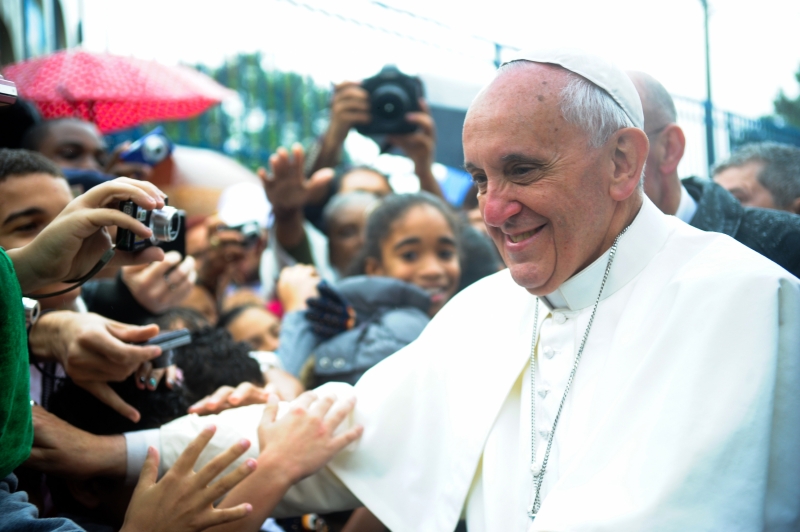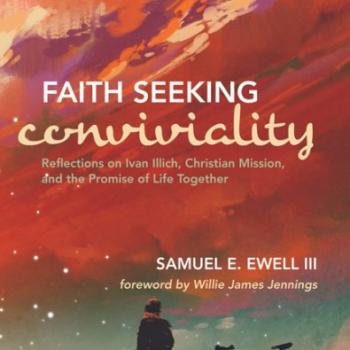Obviously Pope Francis thinks so. As he told the UN back in 2015: “It must be stated that a true ‘right of the environment’ does exist.”
I remember those words from when he spoke them, and haven’t thought much about them since. But today I stumbled upon an article over at Crux, written by a Thomas D. Williams, titled “Perhaps Pope Francis should ask, ‘Who Am I to Fudge?’ ” wherein he states:
“As a theologian, I confess that I cringe when I hear the pope tell the United Nations that the environment has rights (a philosophically unsustainable proposal).”
This got me thinking again about the subject of right, or more specifically, the subject of subjective right, as opposed to objective right.
Objective right is, from the point of view of Thomistic philosophy, that which is due another. In this sense, “right” is simply the maintenance of justice between parties.
Subjective right, on the other hand, is the lawful and inviolable power of doing, omitting, acquiring, possessing, or alienating something.
Objective right is more universal and is closely related to the notion of justice. It obviously implies relation and therefore cannot be “individualized.” Subjective right, since it deals with the power of doing this or that, can be.
Now here’s the thing: the relation between the two concepts is hierarchical. If we forget that, we end up either distorting the meaning of the concept of right, or else truncating it.
“Right, in the strict and formal meaning of the term, is objective right. The moral power is called right only as it is concerned with objective right, i.e., with a just thing. A person has this power, i.e., subjective right, only because first the thing is due to him in accordance with law, i.e., only because objective right first exists. Hence this inviolable power is called right only by extrinsic denomination, i.e., only by analogy of attribution.”
The problem that occurs when you ignore objective right and make subjective right out to be primary,
“it follows that the juridical order consists in a certain autonomy, independence, and liberty. For subjective right is not measured by the just thing, but the just thing is measured by the inviolable faculty, which is a certain liberty…This gives rise to errors among moderns, who speak of liberty of speech, liberty of worship, economic liberty…without any consideration of their relation to the common good.”
In short, if you forget the distinction between objective and subjective right, or if you forget which one is primary, you wind up with an exaggerated notion of subjective, individualistic, “rights,” and lose the ability to deal with right as it relates to the common good. In fact, if you lose objective right as primary, you lose the ability to deal with the common good at all.
Even when it comes to private property, which is a valid principle, it must be remembered that the dominion an individual has over the portion of Creation which he “owns,” this ownership is itself subordinate to the universal destination of goods.
Thus, when Pope Francis spoke of the “right of the environment,” it’s a bit condescending to treat him as if he were making Creation into a person and then attributing subjective rights to this Creation-person, which would be absurd.
I can’t be sure, but I suspect that when Francis speaks of rights he is doing so within the more ancient and more “philosophically sustainable” paradigm that teaches right primarily as the flip-side of duty.
Mankind has a duty to respect nature for what is it—a divine gift conveying not only material benefit but metaphysical meaning. Insofar as this duty is real, it is likewise legitimate to say that the environment has a real “right” to be respected.
Admitting this fact does not require that we elevate the environment to the status of person, nor does it degrade man to the status of the environment. It speaks to the profound dignity of man as a being with responsibilities—that the mere existence of a duty on his part has the power to convey a right on that toward which it is directed.
Of course, if you don’t understand this, and if you adhere to the novel, humanistic version of rights as a list of entitlements people claim against one another, then I could see how the Pope’s words might make you cringe. But the fact that you cringe says more about your theology than it does the Pope’s.
“As a theologian,” Williams should know better. But the fact that his most notable published work is titled “Who Is My Neighbor? Personalism and the Foundations of Human Rights,” we should be surprised that he doesn’t. “Personalism,” as I’ve explained elsewhere, is the manifestation of precisely this error about justice.
As you may or may not know, Crux recently joined forces with the Knights of Columbus. I hope this is not the outcome of that merger, and that this sort of writing, which seems to me to be one of those obnoxious “preemptive rebuttals” to a yet-to-be-released Church document (we saw them in droves before Laudato Si’), is not to become a regular occurrence at John Allen’s respectable outlet.













